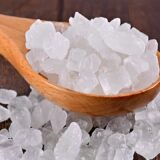Patanjali’s Guide to Monsoon Wellness: Tips for a Healthy Season
The monsoon season, characterized by its dust-free, moist atmosphere and abundant rainfall, significantly impacts the environment and our daily lives. This period fosters the growth of herbs and medicinal plants while altering atmospheric conditions, including higher humidity and reduced sunlight.
With its unique climatic changes, the monsoon season presents specific health challenges. The increased humidity and weakened sunlight can affect respiratory function and overall vitality, leading to common ailments such as indigestion, skin disorders, and general weakness. Maintaining optimal health during this time is crucial to prevent these issues and ensure well-being.
Ayurveda’s View on the Monsoon Season
Ayurveda, the ancient Indian system of medicine, offers a unique perspective on seasonal changes and their impact on health. The monsoon season, known as Varsha Ritu in Ayurveda, brings specific environmental and physiological changes that are crucial to understanding how to maintain balance and health during this time.
Ayurvedic Perspective on the Monsoon
The monsoon season is characterized by increased rainfall, high humidity, and cooler temperatures. According to Ayurveda, these changes can significantly affect the body’s internal balance and overall health.
- Increased Moisture: The high humidity and moisture in the environment can lead to an increase in Kapha dosha, which is associated with earth and water elements. This can cause issues like congestion, sluggish digestion, and skin problems.
- Cooling Effect: The cooler temperatures and damp conditions can weaken the digestive fire (Agni), leading to digestive issues such as bloating, gas, and indigestion.
- Vata-Kapha Imbalance: The season’s qualities can aggravate Vata dosha (air and ether elements) and Kapha dosha (earth and water elements), leading to an imbalance. This imbalance can manifest in symptoms such as fatigue, respiratory problems, and a feeling of heaviness.
Dosha Imbalances During Monsoon
- Kapha Dosha: The predominant effect of the monsoon on Kapha dosha is often an increase in its qualities, leading to symptoms such as excess mucus, lethargy, and water retention. The cool and moist environment promotes the accumulation of Kapha, making it essential to counterbalance these effects with appropriate diet and lifestyle adjustments.
- Vata Dosha: The cooler and more variable weather can aggravate Vata dosha, causing dryness, anxiety, and digestive irregularities. The imbalance can manifest as dryness in the skin and respiratory issues.
- Pitta Dosha: Although Pitta dosha (associated with fire and heat) typically decreases during the monsoon, it’s important to monitor its balance as reduced digestive fire can lead to issues like indigestion and skin problems.
Common Health Issues in Monsoon
During the monsoon, several health issues commonly arise due to dosha imbalances:
- Digestive Problems: Weakening of Pitta can lead to various digestive issues, including indigestion, hyperacidity, and bloating. A decrease in digestive fire (Agni) during this season can also make the body more susceptible to food poisoning and gastrointestinal infections.
- Skin Disorders: The increased humidity and moisture can aggravate Kapha dosha, leading to skin conditions such as eczema, boils, rashes, and fungal infections. The damp environment can create a breeding ground for bacteria and fungi, exacerbating these issues.
- Respiratory Issues: High humidity levels can cause or worsen respiratory conditions. Common problems include sinusitis, bronchitis, and seasonal allergies. Individuals may experience symptoms like breathlessness, persistent cough, and a feeling of heaviness in the chest.
- General Weakness: The reduction in sunlight, which is essential for maintaining energy levels and overall vitality (Ojas), can lead to feelings of fatigue and weakness. The lack of sufficient sunlight can also affect mood, leading to symptoms of depression or lethargy.
- Joint and Muscular Pains: The damp and cool weather can cause joint stiffness and muscular aches, particularly for individuals with existing conditions like arthritis. Increased moisture can lead to inflammation and exacerbate pain in the joints.
- Mental Health Concerns: The gloomy weather and decreased exposure to sunlight can contribute to mental health issues such as anxiety and depression. The overall lack of energy and motivation during the monsoon can affect emotional well-being and mental clarity.
Ayurvedic practices focus on addressing these imbalances through tailored treatments, dietary adjustments, and lifestyle changes to support optimal health during the monsoon season.
Dietary Recommendations for Monsoon
Ayurveda stresses the importance of adapting dietary habits to match seasonal changes, and the monsoon season is no exception.
During this time, the body’s natural balance can be disrupted by the increased humidity and cooler temperatures. Ayurvedic diet principles for the monsoon focus on maintaining digestive health.
Besides this balancing excess moisture, and preventing common seasonal ailments. The goal is to support the digestive fire (Agni) while avoiding foods that could aggravate doshas and lead to discomfort.
1. Foods to Include
- Cooked Vegetables: Warm, cooked vegetables like carrots, squash, and sweet potatoes are easier to digest and help maintain balance by providing essential nutrients without overburdening the digestive system.
- Whole Grains: Incorporate grains such as rice, barley, and quinoa. These grains are light, easy to digest, and help to provide sustained energy, which is important during the monsoon when energy levels can fluctuate.
- Spices: Warming spices like ginger, cumin, turmeric, and coriander not only enhance the flavor of your meals but also aid in digestion and help balance excess moisture. These spices help to stimulate digestive fire and combat the sluggishness associated with high humidity.
- Lentils and Beans: Light legumes like moong dal are excellent sources of protein that are easy on the digestive system. They help maintain energy and provide essential nutrients without being overly heavy.
- Fresh Fruits: Opt for less acidic fruits such as apples and pears. These fruits are nourishing and less likely to irritate the digestive tract compared to more acidic options like citrus fruits.
2. Foods to Avoid
- Heavy and Greasy Foods: Avoid foods that are deep-fried or excessively oily, as they can exacerbate digestive issues and lead to an increase in Kapha dosha, which can cause congestion and sluggishness.
- Cold Foods and Drinks: Steer clear of cold or refrigerated foods and beverages. Cold items can dampen digestive fire (Agni) and slow down digestion, leading to bloating and discomfort.
- Excessive Dairy: Limit dairy products, particularly those that are cold or heavy. Dairy can contribute to mucus buildup and digestive disturbances, which are exacerbated by the increased humidity of the monsoon season.
- Sweet and Sugary Foods: Avoid excessive sugar and sweet foods, which can aggravate Kapha dosha and lead to weight gain, lethargy, and digestive issues.
3. Importance of Warm and Light Foods
During the monsoon season, prioritizing warm, light foods is crucial to support digestion and counterbalance the excess moisture in the environment.
Warm foods stimulate Agni (digestive fire) and help to prevent issues such as bloating, sluggish digestion, and discomfort. Light foods ensure that the body remains energized and balanced without feeling overwhelmed by heavy or overly rich foods.
4. Soups and Herbal Teas
- Soups: Light, broth-based soups enriched with warming spices are ideal for monsoon. These soups are easy to digest and help maintain body warmth, aiding in the prevention of digestive issues and providing comfort during the cooler, damp weather.
- Herbal Teas: Herbal teas such as ginger tea, which aids digestion and helps reduce bloating, are particularly beneficial. Cinnamon and fennel teas also support digestive health and help maintain warmth and comfort. Regular consumption of these teas can enhance overall well-being and balance during the monsoon season.
Hydration Tips for Monsoon
Adequate hydration is essential, but it is equally important to choose the right types of fluids that support health during the monsoon.
Herbal Drinks for Monsoon
- Ginger Tea: This warming tea aids in digestion, alleviates nausea, and helps reduce the effects of excess moisture in the body. Ginger tea is a great way to stay hydrated while supporting digestive and immune health.
- Cumin-Coriander-Fennel Tea: This herbal blend supports healthy digestion, helps balance fluid levels, and reduces bloating. It is particularly effective in alleviating discomfort caused by high humidity.
- Tulsi Tea: Tulsi, or holy basil, has powerful immune-boosting properties and helps to combat the effects of high humidity. It supports respiratory health and helps to maintain energy levels, making it a valuable addition to your monsoon diet.
By integrating these dietary recommendations and focusing on warm, light, and easily digestible foods, you can effectively support your health and well-being throughout the monsoon season.
Lifestyle Tips for Monsoon
1. Morning Rituals
- Early Rising: Start your day early to make the most of the limited sunlight and to establish a consistent routine. Morning light helps regulate your circadian rhythm and boosts mood and energy levels.
- Warm Lemon Water: Begin your day with a glass of warm lemon water to stimulate digestion and help flush out toxins. This simple practice can enhance your overall vitality and set a positive tone for the day.
- Gentle Exercise: Engage in light exercise such as yoga or stretching to invigorate your body, improve circulation, and boost your immune system. Gentle movement helps counteract the sluggishness that often accompanies the monsoon season.
2. Evening Practices
- Early Dinner: Aim to have your evening meal before sunset to ensure that digestion is complete before bed. Eating a light, balanced dinner helps maintain digestive health and supports restful sleep.
- Relaxation Techniques: Incorporate relaxation practices such as meditation or deep breathing exercises in the evening. These techniques can help alleviate stress, improve sleep quality, and promote overall well-being.
- Warm Herbal Teas: Enjoy a cup of herbal tea, such as chamomile or ginger, in the evening. These teas help to relax the body and mind, aiding in a restful night’s sleep.
3. Importance of Proper Clothing
- Cotton and Linen: Choose clothing made from breathable fabrics such as cotton and linen. These materials help absorb excess moisture and allow your skin to breathe, reducing the risk of fungal infections and skin irritations.
- Layering: Use light layers to accommodate fluctuations in temperature and humidity. Layering allows you to adjust your clothing according to the weather and helps keep you comfortable throughout the day.
4. Hygiene Practices: Regular Bathing and Oil Massages
- Daily Bathing: Regular bathing is crucial during the monsoon to maintain personal hygiene and prevent skin issues caused by excess moisture and humidity. Use lukewarm water and mild, natural soaps to cleanse the skin without stripping away its natural oils.
- Oil Massages: Incorporate self-massage (Abhyanga) with warm, therapeutic oils such as sesame or coconut oil. Regular oil massages help balance the doshas, improve circulation, and keep the skin nourished and resilient against damp weather.
By incorporating these lifestyle adjustments, you can effectively manage the challenges of the monsoon season, supporting both physical and mental well-being.

























